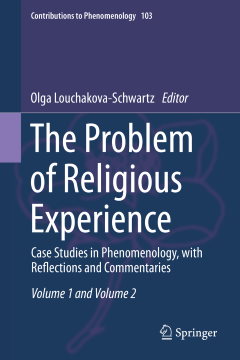Repository | Book | Chapter

(2019) The problem of religious experience, Dordrecht, Springer.
In this chapter, I argue that two aspects of Kierkegaard's thought can help develop a phenomenology of religious experience. The first of these aspects is the importance Kierkegaard puts on describing God as a subject. Throughout his writings, Kierkegaard emphasizes that God is not primarily an object to be perceived, but rather he is a subject to be interacted with. The second is the concept of "contemporaneity." which plays an important role in much of Kierkegaard's writings. Kierkegaard stresses that Christ is not merely a historical person but, rather, a living person who can be engaged with and experienced as contemporary. I argue that these two aspects of Kierkegaard's writings can inform our phenomenology of religious experience. Building on these two insights, I suggest that the starting point for understanding the nature of religious experiences is to be found not in the writings of the mystics but rather in our everyday experience of personal presence. Following recent work in cognitive psychology, I suggest that being present to a person requires attention shared with that person. Thus, by understanding what it is to experience another person's presence, we can make sense of what it is to experience the divine presence.
Publication details
DOI: 10.1007/978-3-030-21575-0_14
Full citation:
Cockayne, J. (2019)., A Kierkegaardian phenomenology of divine presence, in O. Louchakova-Schwartz (ed.), The problem of religious experience, Dordrecht, Springer, pp. 231-244.
This document is unfortunately not available for download at the moment.


